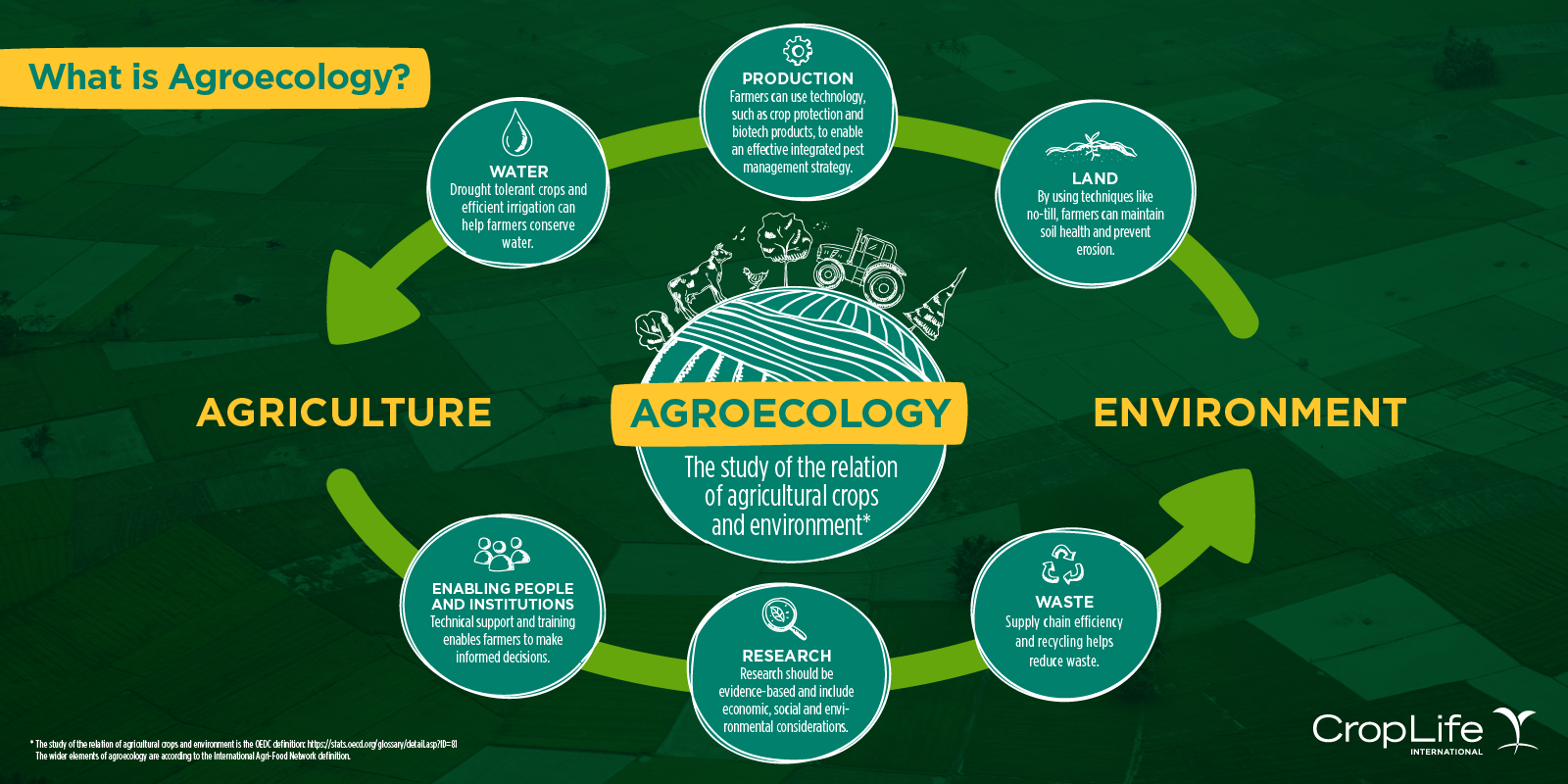Agroecology And Biodiversity Conservation In Farmland
Agroecology is a fascinating and important concept that revolves around sustainable agriculture practices. It focuses on the relationship between ecology and agriculture, emphasizing the need for harmony between nature and farming techniques. In this article, we will explore the various aspects of agroecology and its significance in shaping our future.

Agroecology encompasses a range of practices that promote biodiversity, soil health, and the efficient use of resources in agriculture. By adopting these practices, farmers can improve the sustainability and resilience of their farming systems. This holistic approach not only benefits the environment and local ecosystems but also contributes to the well-being of farmers and consumers.
What is Agroecology?
Agroecology is more than just a farming technique; it is a way of thinking and a movement that aims to transform our agricultural systems. At its core, agroecology seeks to build strong, resilient, and inclusive food systems that are environmentally friendly and socially just. It encourages farmers to work with nature rather than against it, using methods that mimic natural ecosystems and promote ecological balance.
Ideas For
The key ideas behind agroecology are based on the understanding that agriculture is an integral part of the ecosystem and that our food production systems should be in harmony with nature. Some of these ideas include:
- Promoting biodiversity: Agroecology recognizes the importance of biodiversity in agricultural systems. By encouraging the growth of diverse plants and animals, farmers can enhance the stability and productivity of their farms.
- Conserving natural resources: Agroecological practices focus on minimizing the use of non-renewable resources, such as synthetic fertilizers and pesticides. Instead, farmers are encouraged to adopt organic farming methods and utilize natural pest control techniques.
- Enhancing soil health: Agroecology places special emphasis on maintaining and improving soil health. Healthy soils are essential for sustainable agriculture as they provide essential nutrients to plants and help retain water, reducing the need for irrigation.
- Empowering farmers: Agroecology recognizes the knowledge and expertise of farmers and seeks to empower them to make informed decisions about their farming practices. It promotes farmer-led research and encourages the sharing of traditional knowledge.
- Promoting social justice: Agroecology aims to create fair and equitable food systems. It advocates for the rights of small-scale farmers, farm workers, and indigenous communities, ensuring their inclusion and participation in decision-making processes.
Recommendations For
If we are to build a sustainable and resilient food system, it is crucial that we embrace agroecology and integrate its principles into our agricultural practices. Here are some recommendations for promoting agroecology:
- Invest in research and education: Governments and institutions should allocate resources to support agroecological research and education programs. This will help farmers learn about agroecological practices and their benefits, enabling them to make informed decisions.
- Provide financial incentives: Governments can provide financial incentives to farmers who adopt agroecological practices. This could include subsidies, grants, or tax breaks, making it economically viable for farmers to transition to more sustainable farming methods.
- Strengthen policy frameworks: Policymakers need to develop policies that support agroecological practices and create an enabling environment for their adoption. This could involve setting quality standards for organic products, encouraging agroecological research and innovation, and promoting agroecology in international forums and agreements.
- Support knowledge sharing platforms: Governments and organizations should establish platforms for farmers to share their experiences and knowledge about agroecology. This could include farmer-led networks, online forums, and workshops where farmers can exchange ideas and learn from each other.
- Encourage partnerships and collaboration: Collaboration between farmers, researchers, policymakers, and consumers is essential for scaling up agroecology. By working together, we can develop solutions that are context-specific and responsive to local needs and challenges.
Listicle of
Here is a listicle of the top 5 benefits of adopting agroecology:
- Improved soil fertility and health
- Enhanced biodiversity
- Reduced environmental impact
- Resilient and climate-adaptive farming systems
- Social and economic benefits for farmers and communities
Question & Answer
Q: How does agroecology contribute to food security?
A: Agroecology promotes sustainable farming practices that improve productivity and resilience. By diversifying crops, enhancing soil fertility, and reducing dependency on external inputs, agroecological systems are better equipped to withstand climate shocks and ensure food security in the long run.
Q: Is agroecology only for small-scale farmers?
A: Agroecology can be practiced by farmers of all scales. While small-scale farmers have long been practicing agroecology, its principles and practices can be adapted to large-scale farming systems as well. The key is to incorporate biodiversity, ecological balance, and resource efficiency into farming techniques.
Summary of
Agroecology is an innovative and holistic approach to agriculture that promotes sustainable and resilient farming practices. By focusing on biodiversity, soil health, and efficient resource utilization, agroecology offers a pathway to building inclusive and environmentally friendly food systems. To fully embrace agroecology, we need to invest in research, provide financial incentives, strengthen policy frameworks, support knowledge sharing platforms, and encourage collaboration. By adopting agroecological practices, farmers can enhance productivity, protect the environment, and improve the well-being of their communities.

Post a Comment for "Agroecology And Biodiversity Conservation In Farmland"